review
Thirteen Cents
Johnny Mad Dog
Johnny Mad Dog
We're selfish, decadent, and despicable. All of us. No good, piss poor examples of humanity, you and I.
How else to explain our nice lives, compared to those of the boys in Sello Duiker's Thirteen Cents, and Johnny Mad Dog? We live comfortable, pampered lives, buffered and insulated from reality. How can we look ourselves in the mirror when these unspeakable horrors are permitted in the 21st century? How can this happen? We allow it to happen, all of us, or it wouldn't happen at all. As Voltaire said, "Every man is guilty of all the good he didn't do."
The abuse - physical, sexual, and mental - meted out to the children in both titles, isn't front page news. We know it goes on. The real revelation, for me at least, is the extent to which we've become desensitised to it, taking it in our stride as something that happens elsewhere to someone else. "Paedophile" has become merely a tabloid headline, stripped of the stomach-churning reality so that we roll our eyes and think, "Oh well." Nobody cares, it seems.
Thirteen Cents contains graphic depictions of our 12-year-old "protagonist", Azure (pronounced Ah-zoo-ray), who - to survive - satisfies the lust and perversions of adults in Cape Town. It's not titillating. It's not shocking. It's gruelling. It's soul-destroying. And it's happening right now, for real, all over our lovely globe. I read much of Thirteen Cents on the Tube going to work, and several times had to bite my lip to stop myself from
crying. Trapped in a world of unbelievable violence, of gangsters, corrupt police, paedophiles and drugs, Azure's tale is relentlessly grim, eye-opening and essential reading.
(And here's the real "icing on the cake". I didn't read the author bio until I was nearly finished the book. To add to the depiction of Azure's despair, came the knowledge that Duiker, right, hanged himself in 2005. He was 30-years-old.)


Having finished Thirteen Cents, I finally forced myself to watch Johnny Mad Dog, a film that's been on my shelf for a while, which I'd been afraid to tackle on my own. My boo, who's Zimbabwean, had previously refused to watch it with me on the grounds he'd find it too upsetting - and he's as hard as nails. Ah, but I left it a while, and he forgot, and Johnny Mad Dog ain't the kind of film you can stop watching once it's started. Like Thirteen Cents, it's traumatising, but you can't look away - and nor should we.

This tale of child soldiers - played by real former child soldiers - follows a squad of boy killers as they make a final assault on government forces, raiding villages for fresh troops (the opening scene has us witness a boy, no older than 10, forced to choose between shooting dead his own father or being killed himself) and executing adults for target practice. Their adult general brainwashes them with bizarre rituals (he unleashes a machine gun volley on them to prove they're impervious to bullets. The rounds are blank) and hypes them up by rubbing cocaine into fresh cuts.
The Wire's fourth season looked at Baltimore's school system, and focused on four "disadvantaged" boys. That was tough, weep-like-a-baby material. Johnny Mad Dog makes it look like an episode of Saved By The Bell.

Christophe Minie is incredibly charismatic as the titular Johnny, the "small boy commander". But his lieutenant No Good Advice (Dagbeh Tweh), all of 10 or 11-years-old, is terrifying: feral and unhinged. Johnny is draped in rosary beads, whilst one of his youngest soldiers, Butterfly, wears butterfly wings. Another wears speedos and a red crash helmet, whilst one muscular older youth takes to a wedding dress. None of it is a flight of fancy, as the montage of documentary photos over the film's closing credits shows. This film is visually stunning: like their neighbours in Sierra Leone and Ivory Coast, the people of Liberia are exceptionally beautiful, and director Jean-Stéphane Sauvaire makes the most of this fact, and of their equally beautiful, scarred country, jumping from staccato bursts of violence to eerily calm scenes of rural and urban devastation.

There's one important difference in the message I took away from each work. There seems little hope in Thirteen Cents, no sense that things could get better. With so much evil in the world, how can anything be good? The knowledge of Duiker's suicide compounds this.
Johnny Mad Dog is an entirely different story. A 50-minute film, The Making of Johnny Mad Dog, takes us behind the scenes on the film, to screentests and acting lessons with the former child soldiers. The making of the film is shown to be a positive transformative experience for the boys, now despised by Liberians for their part in the war. It's joyful, a real ray of hope, where we see the boys for what they truly are: children.




















.webp)




.jpg)
.jpg)









































































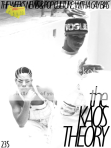
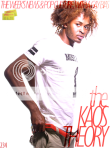



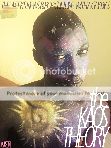


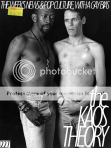









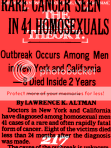
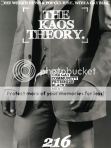













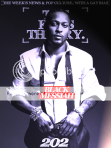
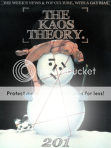
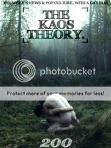
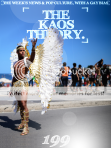


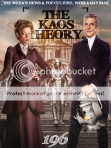
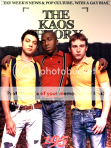















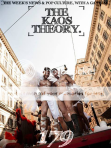




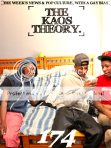







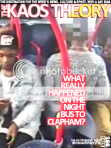






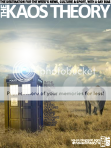





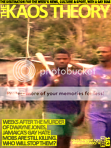

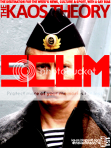




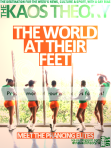









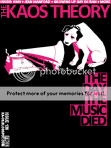



















































































































































4 comments:
I just searched for both movies on Netflix. "Thirteen Cents" is not a rentable option. I wonder if it has a U.S. distributor. I did find "Johnny Mad Dog" but the release date is not set. When it's released I'll definitely watch it. These movies appear mucho better than the old queen hollywood's recommendations. :) Thanks!
OUCH! You and your beef with "Old Hollywood"...
Thirteen Cents is a book, Mike, hence why I was "reading" it on the Tube!
Johnny Mad Dog is available from Amazon.co.uk for £4.47 - even if you don't have a multi-region DVD player you'll be able to watch it on your computer.
http://www.amazon.co.uk/Johnny-Mad-Dog-Jean-Stephane-Sauvaire/dp/B002SVP9JG/ref=sr_1_1?ie=UTF8&qid=1297737912&sr=8-1
Trust me - it'll be the best $10 you've spent!
Opps I need to read a little slower, innit. I just did a quick search for the book (Thirteen Cents) on Amazon US and it's listed for $97.03! Holy shit! And "Johnny Mad Dog" DVD is selling for $17.00. Not sure about the DVD, I stopped buying DVDs because I can typically watch or rewatch anything from Netflix for my low monthly. And I hate the clutter. The "Johnny Mad Dog" poster is only $7. Maybe I'll get the poster.
PERFECT title for this entry.
Post a Comment